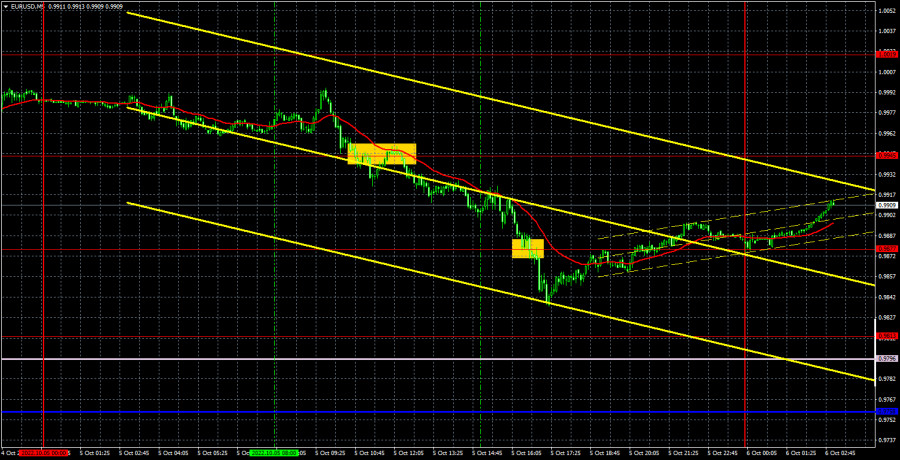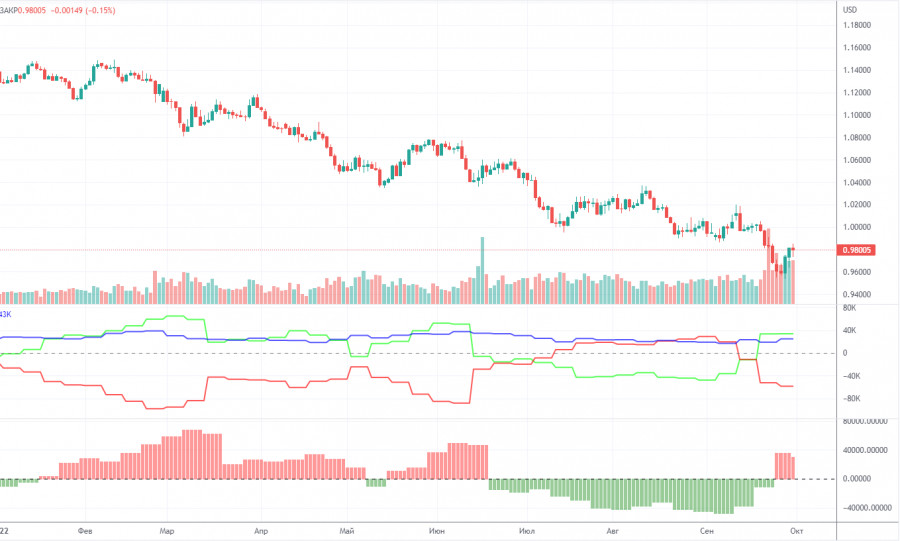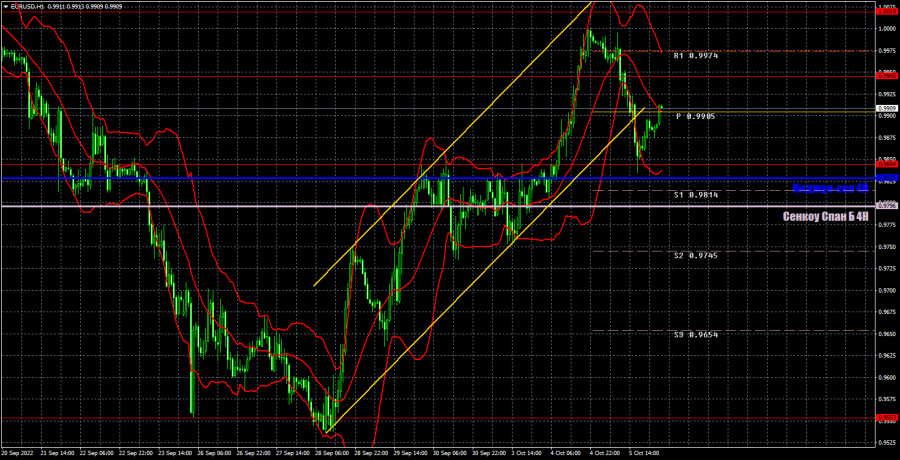EUR/USD 5M

The EUR/USD pair began to correct sharply on Wednesday. It had formal grounds for this, as a weak report on business activity in the service sector of the European Union was released in the morning, and in the afternoon we received pretty good data on the US labor market and good indexes of business activity in the service sector. Thus, all the reports of the past day were in favor of the dollar. However, we do not believe that only these reports have provoked a strong fall in the pair. First, the fall began an hour before the release of the first report. Secondly, all the reports of the day, except perhaps the ISM index, were not so strong and important as to provoke a fall of 150 points. We believe that after several days of strong growth, it is time to correct slightly, so the reasons are mostly technical. Despite the fact that the pair has consolidated below the rising channel, it remains above the lines of the Ichimoku indicator, so the upward trend continues. The channel has a very large angle of inclination and can change to a quieter angle. So far, we expect a new growth of the euro if the price manages to stay above the Kijun-sen and Senkou Span B.
Two trading signals were formed on Wednesday, but both are quite strong. The first sell signal was not formed at the very beginning of the downward movement, however, it should have been worked out, because it was unambiguous. After opening short positions, the price managed to consolidate below the level of 0.9877, after which it returned to it. Somewhere in this area, it was possible to close the position manually, since there was no signal to buy. Profit amounted to at least 70 points.
COT report:

The Commitment of Traders (COT) reports on the euro in 2022 can be entered in the textbook. For half of the year, they showed a blatant bullish mood of commercial players, but at the same time, the euro fell steadily. Then they showed a bearish mood for several months, and the euro also fell steadily. Now the net position of non-commercial traders is bullish again, and the euro continues to fall. This happens, as we have said, because the demand for the US dollar remains high. Therefore, even if the demand for the euro is growing, the high demand for the dollar does not allow the euro itself to rise. During the reporting week, the number of long positions for the non-commercial group increased by 2,000, while the number of shorts decreased by 1,800. Accordingly, the net position grew by about 200 contracts. This is very small and this fact does not matter much, since the euro still remains "at the bottom". At this time, commercial traders still prefer the euro to the dollar. The number of longs is higher than the number of shorts for non-commercial traders by 34,000, but the euro cannot derive any dividends from this. Thus, the net position of the non-commercial group can continue to grow further, this does not change anything. Even if you pay attention to the total number of longs and shorts, their values are approximately the same, but the euro is still falling. Thus, it is necessary to wait for changes in the geopolitical and/or fundamental background.
We recommend to familiarize yourself with:
Overview of the EUR/USD pair. October 6. Washington may be behind the Nord Stream bombing.
Overview of the GBP/USD pair. October 6. The Bank of England is finally confused: to stimulate or tighten?
Forecast and trading signals for GBP/USD on October 6. Detailed analysis of the movement of the pair and trading transactions.
EUR/USD 1H

The upward trend is still preserved on the hourly timeframe due to the Ichimoku indicator lines, which are still below the price. This week there will be at least one more important report - NonFarm Payrolls on Friday - so the euro has a chance to fall below these lines. At the same time, weak US statistics on Friday may push the pair up, which is in line with the current trend. We highlight the following levels for trading on Thursday - 0.9553, 0.9844, 0.9945, 1.0019, 1.0072, 1.0124, 1.0195, as well as Senkou Span B (0.9796) and Kijun-sen lines (0.9828). Ichimoku indicator lines can move during the day, which should be taken into account when determining trading signals. There are also secondary support and resistance levels, but no signals are formed near them. Signals can be "rebounds" and "breakthrough" extreme levels and lines. Do not forget about placing a Stop Loss order at breakeven if the price has gone in the right direction for 15 points. This will protect you against possible losses if the signal turns out to be false. The European Union will release a report on retail sales for August, and in the US we only have a report on applications for unemployment benefits. Neither the first nor the second are important, so reaction to them may be extremely weak or absent altogether.
Explanations for the chart:
Support and Resistance Levels are the levels that serve as targets when buying or selling the pair. You can place Take Profit near these levels.
Kijun-sen and Senkou Span B lines are lines of the Ichimoku indicator transferred to the hourly timeframe from the 4-hour one.
Support and resistance areas are areas from which the price has repeatedly rebounded off.
Yellow lines are trend lines, trend channels and any other technical patterns.
Indicator 1 on the COT charts is the size of the net position of each category of traders.
Indicator 2 on the COT charts is the size of the net position for the non-commercial group.













